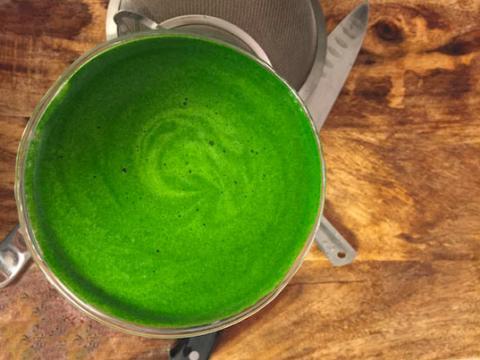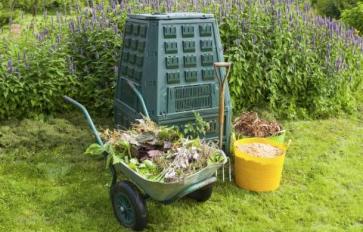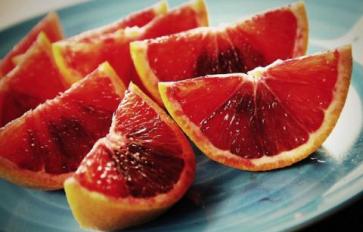
Do you want to eat more plants? If so, you have a lot of company. Interest in the topic spiked dramatically last year. Plant-based eating is both timeless and totally new, depending on how you look at it. Throughout time, the overwhelming majority of societies were plant-based, but in the last century unprecedented changes at the societal and agricultural levels began to make plant-based eating worthy of a fresh look. I recently spoke to Joyce Rockwood, CCH, the executive producer and host of Plant-Based Champions, a new free online educational summit featuring original interviews with 21 of the world’s most influential plant-based luminaries. Joyce began her plant-based journey more than 30 years ago, at the age of sixteen, and then took a deeper dive when she was mentored by colon hydrotherapy pioneer Gil Jacobs in New York City. Over the last 20 years, she has advised thousands of clients using detoxification protocols that favor plant-based eating, with an emphasis on veganism.
SL: How do you define plant-based eating?
JR: It’s really simple. A person following a plant-based diet eats mostly plants. It’s not someone who is necessarily vegetarian or vegan. Plant-based provides room to move towards vegetarianism and/or veganism. Titles can hamper some people because they get attached to an image. Plant-based eating leaves space for supportive transformation and is non-dogmatic.
SL: Is plant-based eating a good place to begin for someone who ultimately wants to adopt a vegan lifestyle?
JR: For many people, yes, but it ultimately depends on the individual and their impetus for changing their way of eating. I’ve always believed in transition because I feel that it’s easier for people to be consistent and get the best results when they don’t move from first to fourth gear. A transitional approach lets people glide into veganism. But there are people who have a different, more imperative, timeframe. For example, people who are considerably sick, or who suddenly become conscious of the health, environmental, and ethical implications of eating meat after seeing films like Forks Over Knives, Cowspiracy, or What the Health. For those people, changing their way of eating almost immediately is the best choice.

SL: Can one eat too many plants?
JR: There are different categories of people who can be adversely affected by eating too many plants. People who have been under chronic stress, eaten a diet high in fat and sugar, or taken a lot of antibiotics might not have enough of the bacteria intended to properly digest certain plants. These people might want to consult with a functional medicine doctor or nutritionist who can perform tests on the microbiome before changing their diets dramatically. Even people who aren’t in those categories can experience symptoms like bloating and gas if they suddenly overeat salads and other roughage. Salads are very cleansing. If large amounts go into the body and loosen excessive volumes of impacted material from the bowel too quickly, people can feel sick. That’s where adjusting the diet and colonics can come into play. The bowels must receive as much attention as the diet since detoxification is a two-step process: Loosen waste, remove waste! Just like shampooing your hair: suds it up, rinse it out!
SL: Do people on plant-based diets need to be more mindful about getting enough nutrients due to soil erosion?
JR: Produce items today aren’t as mineral rich as they once were decades ago. I advise all of my clients to add juices and supplementation to their diets right off the bat. Juice increases mineral intake and supports microbiome health. I personally have more energy and detoxification when I take a multivitamin, omega fatty acids, and a cellular complex. The world renowned agronomist, scientist, and farmer John Kempf, who I interviewed for the summit, says this about the relationship between soil erosion and cattle farming: “The state of Iowa, the heart of the corn belt, loses two pounds of topsoil for every pound of corn that is produced in this state. This means that when this corn is used to feed corn finished beef, for that finished beef, every quarter pound of hamburger represents the equivalent of two pounds of soil loss. This cannot be sustained and will lead to greater reduced productive capacity if it is not corrected quickly. Our continued loss of top soil is undermining the nutritional value of our food and reducing the yield potential of the future.” John’s work reflects an understanding of plant-based nutrition that’s unparalleled. He’s revolutionizing the farming model by focusing on the immune system of plants. There’s scientific evidence that the immune system of plants is impacting the immune system of humanity.

SL: Would you share some of your favorite tips to eat more plant-based meals?
JR: Incorporate a veggie juice daily, eat one plant-based meal a day, and make homemade nut milk at home. Nut milks are so easy to make, and can easily replace cow’s milk. Also choose hearty foods like quinoa, millet, and squash to feel satiated.
SL: Tell us about your educational summit, Plant-Based Champions.
JR: Plant-Based Champions is my new free online video series. The purpose is to present the plant-based diet and lifestyle to entertainers, athletes, and other global game changers as a way to attain peak performance. I interview 21 of the world’s greatest plant-based influencers in the fields of medicine, science, entertainment, agriculture, health, wellness, and fitness. My mission is to make sure people know they can reclaim or maintain their power and experience outstanding health with a plant-based diet. Each influencer shares research, knowledge, insights, tips, and time-tested strategies that can be implemented right away regardless of how familiar or unfamiliar you are with the concepts. The time has come for us to reclaim our health and impact positive change on the planet!

Joyce Rockwood’s Juice Recipes
Each yields one serving (approximately 16 ounces /454 grams of juice).
For a Great Starter Juice:
Ingredients
- 1/2 head romaine lettuce
- chunk of ginger, to taste
- 2 carrots, peeled
- 1/2 of a cucumber
For a More Advanced Juicer:
Ingredients
- 1 bunch spinach
- 1 bunch celery
- 1/2 cucumber (optional)
- 1/2 lemon
Directions
Process all ingredients through a juicer according to manufacturer’s directions, strain, and serve immediately.
Joyce Rockwood, CCH, is a gut health expert, gravity-based certified colon hydrotherapist, and doTERRA essential oils educator and distributor. She is a passionate holistic health practitioner, dedicated to presenting an alternative, preventive approach to living a healthy lifestyle and helping clients overcome chronic illness and pain. She has co-owned and operated two successful wellness studios in New York City and was the director of colon hydrotherapy at the Springs in Los Angeles. She consults individually, in groups, and is available for organizational trainings on essential oils. You can find her on Instagram @joyce_rockwoodcch and Twitter @joycerockwood. Her free online educational summit Plant-Based Champions will debut on February 20, 2018.
All photos by Joyce Rockwood








